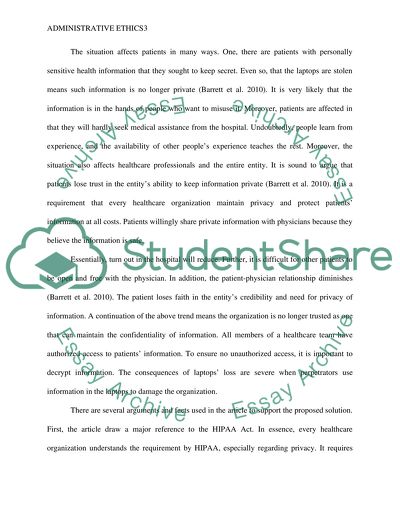Cite this document
(“Administrative Ethics Paper Research Example | Topics and Well Written Essays - 1250 words - 1”, n.d.)
Administrative Ethics Paper Research Example | Topics and Well Written Essays - 1250 words - 1. Retrieved from https://studentshare.org/health-sciences-medicine/1693756-administrative-ethics-paper
Administrative Ethics Paper Research Example | Topics and Well Written Essays - 1250 words - 1. Retrieved from https://studentshare.org/health-sciences-medicine/1693756-administrative-ethics-paper
(Administrative Ethics Paper Research Example | Topics and Well Written Essays - 1250 Words - 1)
Administrative Ethics Paper Research Example | Topics and Well Written Essays - 1250 Words - 1. https://studentshare.org/health-sciences-medicine/1693756-administrative-ethics-paper.
Administrative Ethics Paper Research Example | Topics and Well Written Essays - 1250 Words - 1. https://studentshare.org/health-sciences-medicine/1693756-administrative-ethics-paper.
“Administrative Ethics Paper Research Example | Topics and Well Written Essays - 1250 Words - 1”, n.d. https://studentshare.org/health-sciences-medicine/1693756-administrative-ethics-paper.


